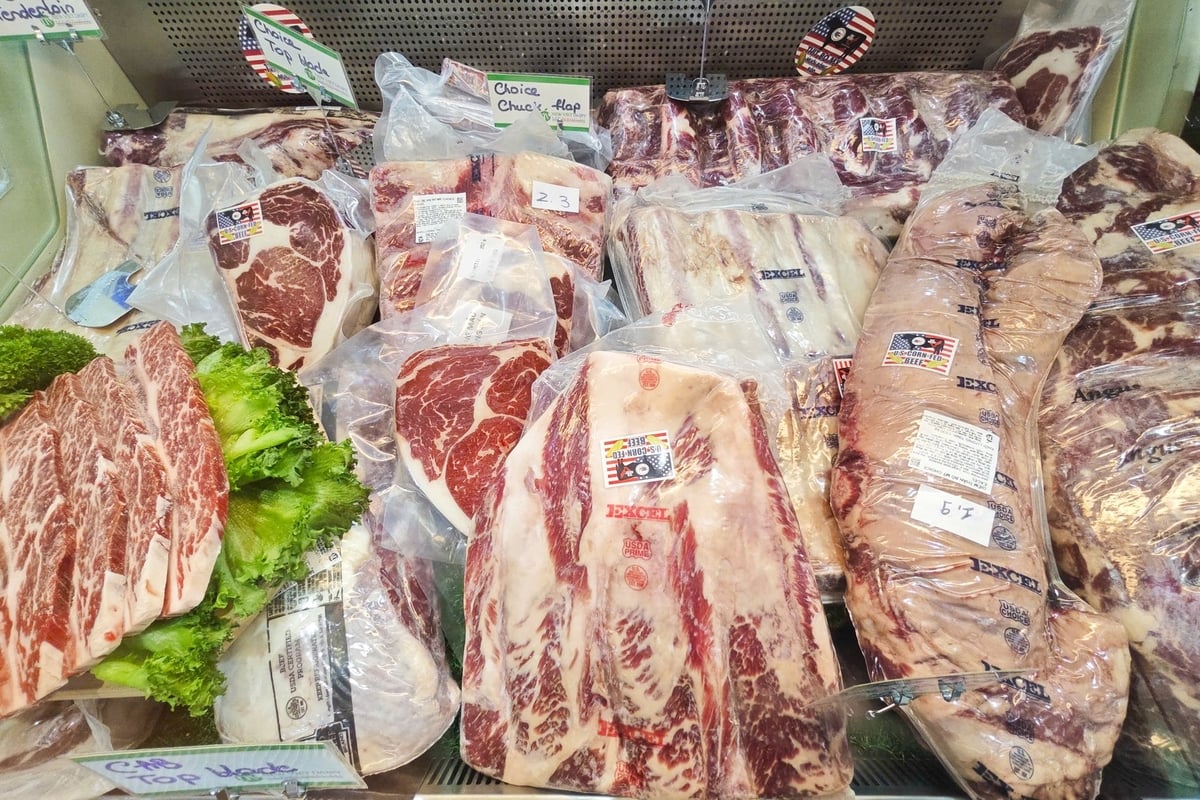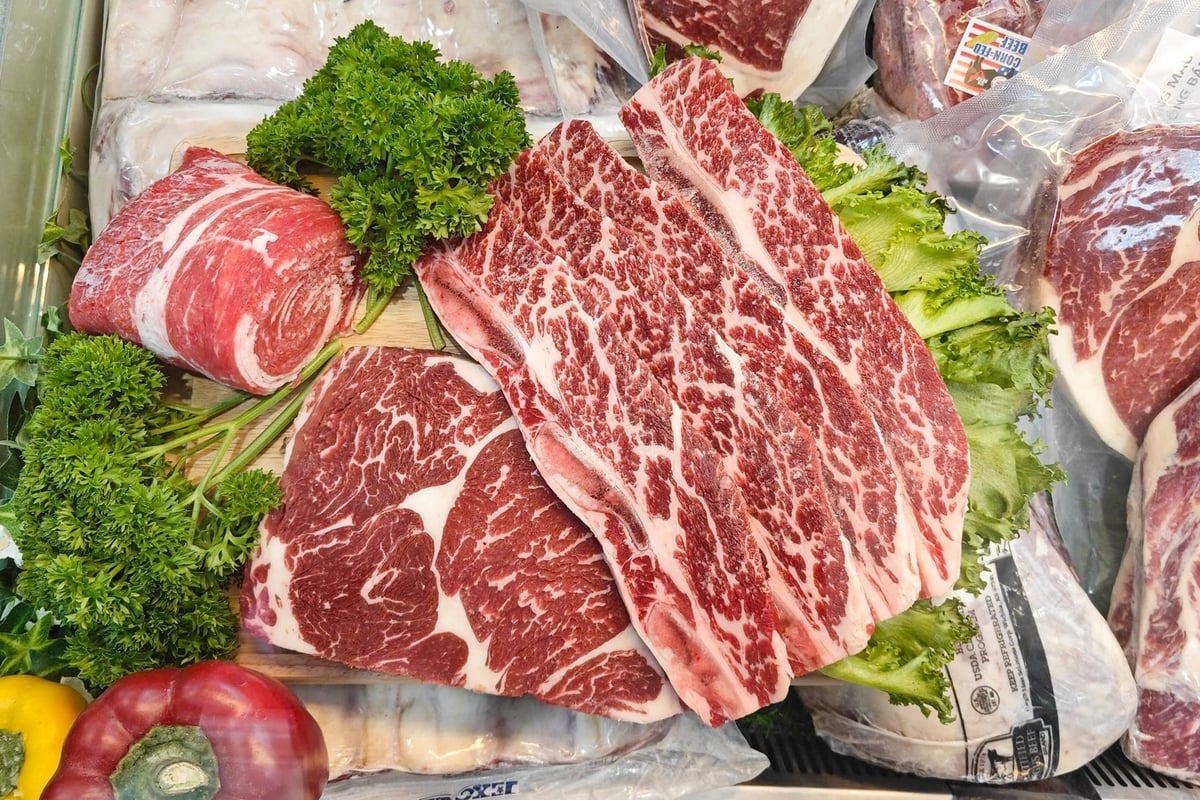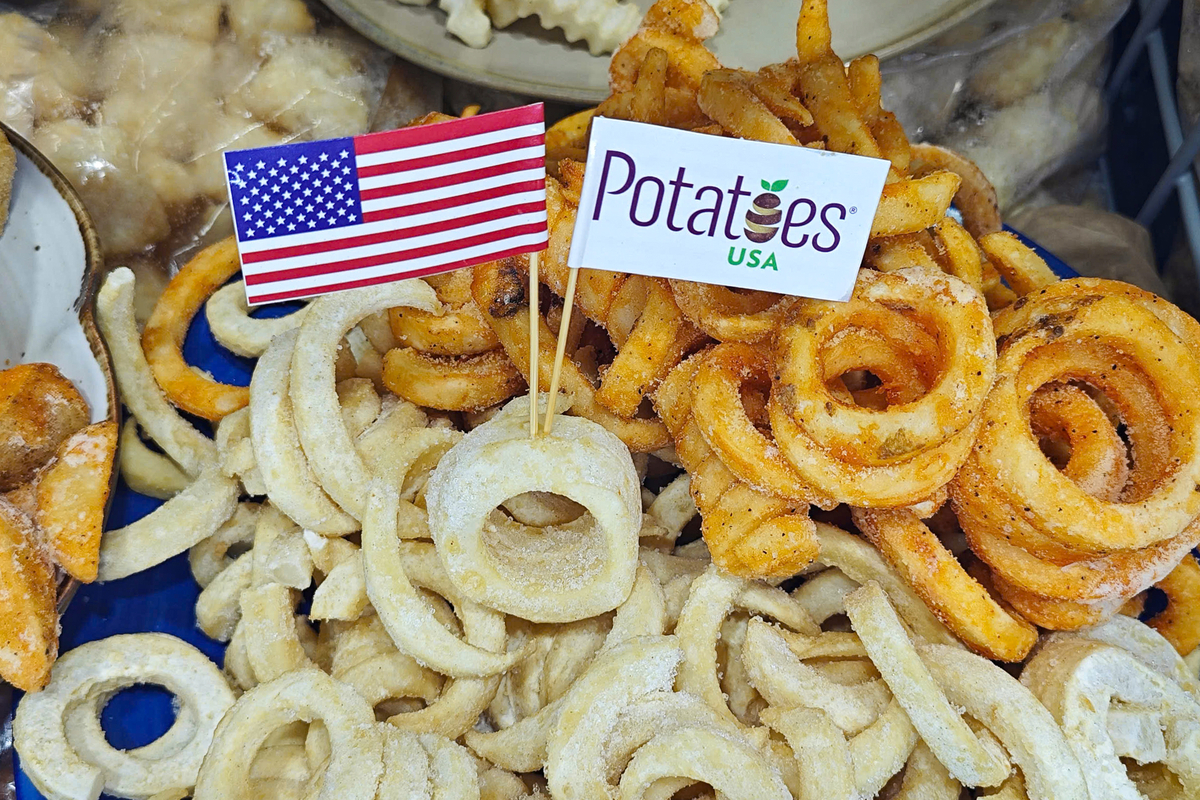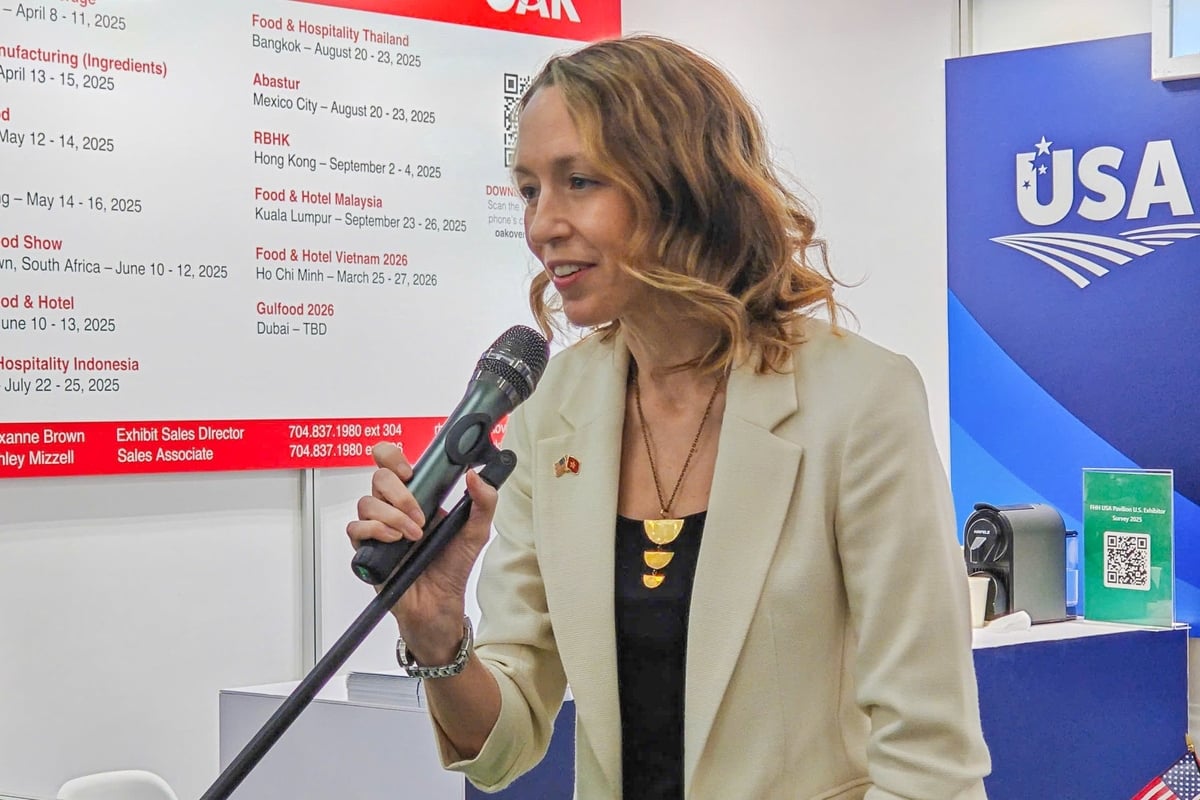November 26, 2025 | 12:52 GMT +7
November 26, 2025 | 12:52 GMT +7
Hotline: 0913.378.918
November 26, 2025 | 12:52 GMT +7
Hotline: 0913.378.918

US meat products exported to Vietnam are subject to higher taxes than those of CPTPP countries. Photo: Tung Dinh.
Although meat products from the United States are marginally more expensive than those from other countries, they have become increasingly popular among consumers in Vietnam.
One potential explanation is that the tariffs on American meat are substantially greater than those imposed on countries that are members of the Comprehensive and Progressive Agreement for Trans-Pacific Partnership (CPTPP).
In this context, U.S. industry associations and commodity groups are not only prioritizing the assurance of product quality, but they are also actively participating in trade promotion programs to expand the market and attract consumers.
A non-profit organization, the U.S. Meat Export Federation (USMEF) is committed to the development of new opportunities and the expansion of existing international markets for American beef, pork, lamb, and veal. USMEF's objective is to provide consumers in numerous countries worldwide with high-quality U.S. red meat products.
Mr. Le Van Anh Tu, the representative of the USMEF in Vietnam, has identified tariffs as the most significant obstacle at present. More specifically, he stated that a 10% tariff is imposed on U.S. pork imported into Vietnam, while beef is subject to tariffs varying from 14% to 20%. In contrast, similar products from countries that are part of the CPTPP enjoy a zero tariff.
Because of this disparity, consumers in Vietnam find U.S. meat products to be more expensive than those from other countries. In certain instances, tariff impacts result in a high ultimate price for consumers, despite the fact that the original cost of U.S. meat is lower than that of competitors.

US beef is positioned as a high-quality product in the Vietnamese market. Photo: Tung Dinh.
Mr. Tu also revealed some proactive solutions from USMEF, as he is of the opinion that future trade policies between the U.S. and Vietnam will help facilitate trade and bring positive results. The organization concentrates on trade promotion activities to support the market, as it is unable to directly influence or alter pricing. USMEF supports importers and distributors of U.S. meat in Vietnam by means of a variety of initiatives, such as consumer marketing, customer training, and financial incentives for distribution channels.
Our dedication to traditional U.S. business partners extends beyond our active involvement in promotional and marketing initiatives. Mr. Tu further stated that this is the most effective method of fortifying trade exchanges and preserving robust partnerships during this time.
He underscored the outstanding performance of U.S. meat products when discussing their advantages. Despite the fact that the United States has one of the world's largest meat production industries, its meat products are subject to rigorous quality control measures. By adhering to the same standards as those for domestic consumption, exported products guarantee that there is no quality disparity.
Furthermore, the inspection, quality assessment, and meat grading processes are handled by U.S. regulatory agencies using modern equipment, ensuring uniformity and objectivity in the final product.
Additionally, the grain-based feeding system used in the U.S. results in higher fat content compared to free-range livestock, producing tender, juicy meat that aligns with Vietnamese consumer preferences. In the United States, corn comprises 80% of livestock feed, which is a significant factor in the superior quality and flavor of American meat in comparison to products from other regions.
USMEF continues to capitalize on these advantages in order to increase the availability of American livestock products to Vietnamese consumers.

The United States has many food products that are popular with Vietnamese consumers. Photo: Tung Dinh.
In addition to the increasing production costs in the United States, Vu Thi My Van, the manager of imported meat and seafood products from the U.S. at Dai Tan Viet Company, which includes beef, pork, lamb, chicken, and seafood, shared the same perspective as Mr. Tu. He stated that import tariffs continue to be a significant challenge, resulting in high prices for Vietnamese consumers.
Conversely, Vietnam has been importing U.S. meat products for an extended period of time, and they have garnered a strong reputation for their superior quality.
Ms. Vu Thi My Van expressed her optimism that Vietnam's consumers would shortly benefit from preferential tax policies, given the country's annual import volume of approximately 5,000 tons of beef.

US Deputy Ambassador to Vietnam Courtney Beale emphasized the role of agricultural trade. Photo: Tung Dinh.
Furthermore, organizations such as Dai Tan Viet anticipate the implementation of additional trade promotion initiatives and initiatives to broaden consumer accessibility to these products.
The imported products of Dai Tan Viet were previously exclusively available in high-end restaurants and hotels. Nevertheless, they are now extensively available throughout the nation through retail channels.
U.S. Deputy Chief of Mission to Vietnam, Courtney Beale, maintains that agricultural trade is a critical component of the dynamic and expanding economic relationship between the United States and Vietnam, which has thrived for the past three decades and will continue to do so in the future.The 3rd International Exhibition on Food, Beverage, Bakery Equipment, Restaurants, Hotels, and Hospitality Services—Food & Hospitality Hanoi 2025 (March 18) will bring together food suppliers, consumers, and all key stakeholders in the agriculture industry at the U.S. business pavilion. Beale also confirmed that this presents an opportunity to enhance market access for agricultural products from the United States.
Translated by Linh Linh

(VAN) Thanh Hoa province has substantial potential to supply carbon credits, opening opportunities for green economic development, enhancing agriculture and forestry value.
/2025/11/25/1741-0-nongnghiep-221736.jpg)
(VAN) The application of AI helps identify emission sources and assess air pollution developments, thereby supporting management agencies in issuing timely and appropriate control policies.

(VAN) Viet Nam will develop its carbon market not only by prioritizing transaction volumes but also by transitioning to a low-emission economy.
/2025/11/25/3413-1-171953_261.jpg)
(VAN) Experts from the Vietnam Academy of Science and Technology have conducted surveys to identify the causes of landslides in Lam Dong province and propose natural disaster prevention solutions.

(VAN) The HNT reservoir operation support system, developed by WeatherPlus in collaboration with Kyushu Electric Power, enables real-time rainfall forecasting, inflow forecasting, and flood-release simulations.

(VAN) Dr. Cao Duc Phat stated that the localization of early natural disaster warning technologies will help meet practical requirements and create favorable conditions for domestic research institutions and businesses to develop.

(VAN) In addition to improving early-warning technologies, there is a need for software that can guide response actions, track community evacuations, and manage safe zones through digital mapping.